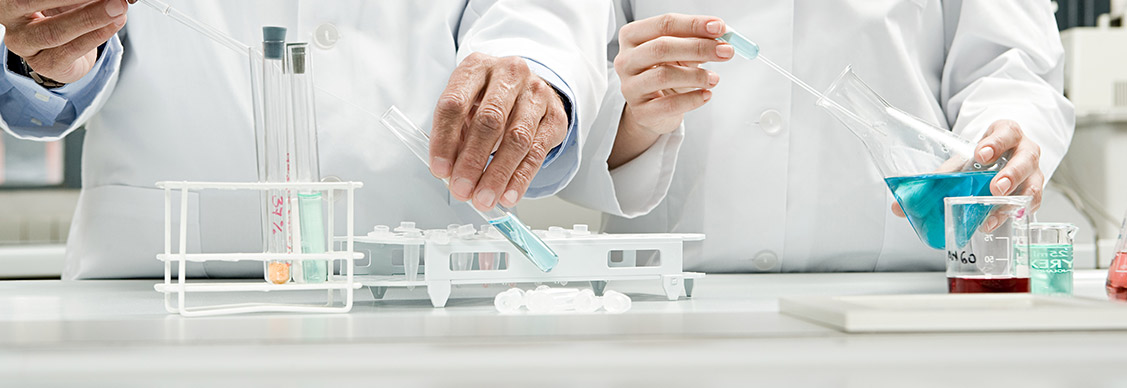Enhancing resilience in GCC pharma & biotech through R&D
Insights by Raviraj Dande, Director, Healthcare Consulting – MENA at JLL
Building self-resilience in the GCC pharmaceutical and biotechnology sector through advanced research and development
The Gulf Cooperation Council (GCC) is on the brink of a healthcare revolution. With a pharmaceutical and biotechnology market valued at around 17 billion USD in 2023 and an expected growth rate of 7% to 8%, the region is ripe for innovation.
However, the reliance on imported pharmaceuticals is a significant hurdle, with only a small number of products manufactured locally. This underscores the need for a shift towards self-resilience through research and development (R&D) and local production.
Moreover, the scientific impact of the GCC is currently modest when compared to global leaders. The H-index, which measures the productivity and citation impact of published research, shows that GCC countries lag behind nations like the US and Germany. Yet, within the GCC, Saudi Arabia and the UAE stand out with the highest H-indices of 567 and 329 respectively, indicating a strong foundation for future growth in research.
Challenges in the GCC pharmaceutical and biotech sector
The GCC pharmaceutical and biotechnology industry faces several challenges that impede its progress. One key challenge is that building research and development facilities and pharmaceutical factories requires significant capital and has a long payback period. Additionally, there’s a shortage of skilled proffessionals for new medicine research in the reigion.
Moreover, the high disposable income per capita and reliance on imported medicines, combined with a smaller market size compared to more mature countries, make it difficult for local and multinational companies to invest in R&D to develop innovative molecules for local manufacturing.
GCC’s roadmap to overcome challenges, propel R&D, and become global leaders in pharma and biotech
The Gulf countries aspire to establish themselves as leaders in the medicine and biotech sectors. They plan to improve research and expand their pool of skilled workforce. Moreover, these nations are diligently revising regulatory frameworks and adopting progressive methodologies for facilitating the seamless dissemination of knowledge. Such endeavors are geared towards incubating innovative ventures, while creating a collaborative environment between esteemed academic institutions and existing pioneers in pharma and biotech.
Looking for more insights? Never miss an update.
The latest news, insights and opportunities from global commercial real estate markets straight to your inbox.
The following strategies have been devised by the GCC nations to invigorate the pharmaceutical and biotechnology sectors:
Prioritizing investment in R&D
The GCC nations have taken a resolute stance to elevate their investment in research and development and potentially surpass global benchmarks. For example, the United Arab Emirates has set forth an ambitious objective to allocate a greater proportion of their funds towards R&D. Presently, standing at 1.5% of the national GDP, there is a concerted effort to bridge the gap and align with the United States' commendable allocation of 3.5% of GDP to R&D.
Furthermore, by creating collaboration between academia, research institutions, and industry, the GCC aims to create a ecosystem for drug discovery and development. This includes providing sufficient funding for scientific research, encouraging public and private investment in R&D projects, and supporting research grants, fellowships, and scholarships.
Investment Opportunities
Building a world-class workforce
The GCC acknowledges the critical importance of developing a preeminent healthcare workforce to achieve its ambitious goals in the pharmaceutical and healthcare sectors. This strategic focus is being addressed by expanding higher education and postgraduate programs in scientific and engineering fields. Additionally, the GCC is creating an attractive environment for researchers through competitive compensation packages, comprehensive benefits, and clearly defined career advancement opportunities.
Furthermore, the GCC recognizes the need for self-sufficiency and is actively reducing its reliance on foreign healthcare professionals. This is being achieved through significant investments in domestic medical colleges and training centers specifically designed to cultivate a robust national healthcare workforce.
To ensure continuous improvement, the GCC actively participates in internationally recognized university ranking systems, such as the QS World University Rankings and Times Higher Education World University Rankings. By utilizing these benchmarks, the GCC can refine its educational offerings and guarantee their alignment with the highest global standards. This unwavering commitment to building a world-class domestic talent pool will undoubtedly be a transformative force for the GCC's pharmaceutical and biotechnology sectors.
Strengthening intellectual property (IP) framework and regulations
The GCC is laying a solid foundation for its future in pharmaceuticals and biotechnology by solidifying its regulatory environment. This strategic initiative involves strengthening intellectual property protections to incentivize innovation and attract investment. These efforts not only benefit domestic entrepreneurs but also promote collaboration between universities and industry players. Furthermore, streamlined drug approval processes guarantee adherence to international standards. These reforms establish a mutually beneficial environment, making the GCC an attractive destination for both local and international pharmaceutical companies.
Prioritizing biotechnology for a self-sufficient pharmaceutical industry
The GCC countries have strategically prioritized the development of their biotechnology sector to reduce dependence on imports and cultivate a self-sufficient pharmaceutical industry. This focus is manifested in the encouragement of joint ventures between multinational pharmaceutical companies and local manufacturers, facilitating the rapid transfer of critical technologies. Furthermore, active collaboration between universities, research institutions, and industry players fosters interdisciplinary research and promotes the undertaking of joint projects.
The GCC countries recognize the value of international collaboration and actively participate in exchange programs, leveraging global expertise to propel advancements in biotechnology.
Leading the way, Saudi Arabia's National Biotech Strategy serves as a pioneering model. This comprehensive strategy focuses on providing robust support for research and development endeavors, cultivating strong local biomanufacturing capabilities, and establishing strategic partnerships with global leaders in the field.
These combined efforts are meticulously designed to propel the GCC to the forefront of the global biotechnology landscape. With unwavering commitment to continued investment and strategic development, the GCC pharmaceutical market is projected for significant growth, exceeding $27.5 billion within the next five years.
In conclusion, the GCC nations are actively working towards achieving self-resilience in the pharmaceutical and biotechnology sector. The focus is on shifting towards value creation by incorporating and innovating high-end services and technologies. Through initiatives focused on innovation, R&D, and local production, the GCC aims to reduce its reliance on imported pharmaceuticals and become a global leader in the industry. Efforts such as cultivating collaboration, building human capital, encouraging interdisciplinary research, and participating in international collaborations are driving technology transfer and knowledge sharing within the region.
Contact Raviraj Dande
Director, Healthcare Consulting – MENA at JLLWhat’s your investment ambition?
Uncover opportunities and capital sources all over the world and discover how we can help you achieve your investment goals.




